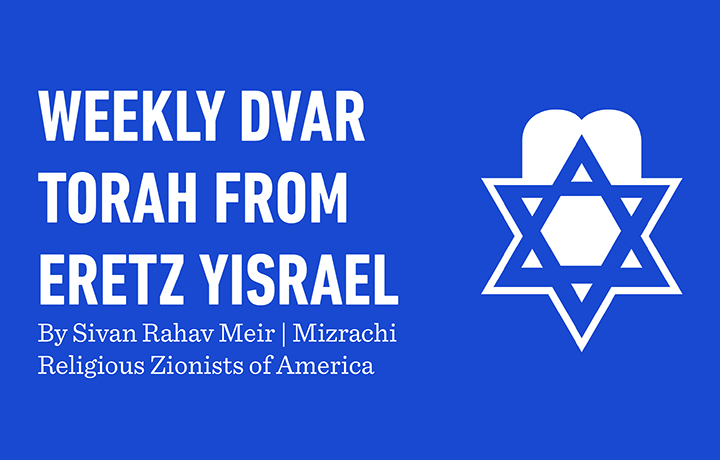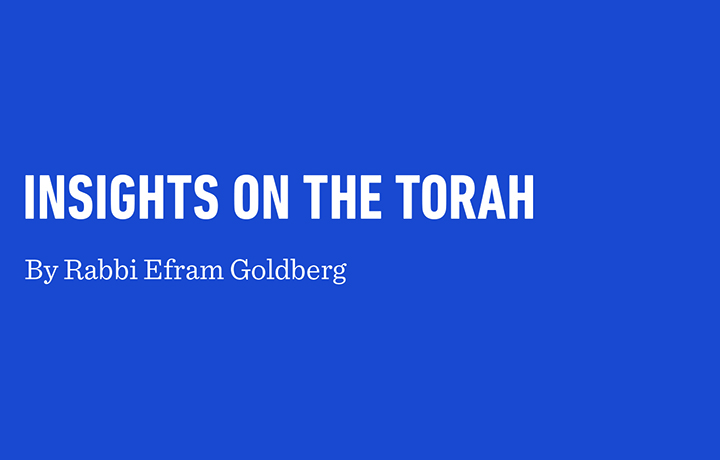War In Israel: Faith Written In The Heavens
We often think of faith in Hashem as something instinctive—either we have it or we don’t. But emunahisn’t just a feeling or an inborn trait. It’s a choice. Faith is a decision.
We look at a challenge, reflect on what we’ve seen and experienced, and then we decide: to believe or not to believe. Emunah isn’t predicated upon complete clarity or certainty. It is merely a decision to trust—even when full understanding is not possible.
In certain instances, the decision to have faith shapes our course of action. We rely upon emunah to carry us forward, to walk us across the bridge of fear and uncertainty. When we can’t summon that faith, we become paralyzed and stuck, unable to move forward or reclaim our vision.
Such was the situation thousands of years ago in the desert, as we stood at the doorstep of Israel, poised to enter Eretz Yisrael and make history. The fairy tale of leaving Egypt, of marching through the dry sea, and of eating heavenly manna was suddenly threatened by a harsh reality: Eretz Yisrael was inhabited by mighty nations and overshadowed by giants. We could not simply waltz into this land. The land of Hashem would not be easily claimed.
Had we summoned emunah, we would have pressed forward and altered the course of history. Instead, we flinched, faltered in our faith, and rerouted our desert journey for forty long years. Had we mustered enough faith, we would have been emboldened to choose a different course of action.
There is a second kind of emunah: not the kind that helps us choose between paths, but the kind we need when no other path exists. Sometimes, life doesn’t offer us alternatives. Instead, we must draw on our faith and inner strength to face the only road available before us.
At the Yam Suf, we were trapped, cornered between the advancing Egyptian army and the raging sea. Though some may have considered returning to Egypt, that was not a real option. We would have faced brutal persecution for our rebellion. The Egyptians would have made an example of us to crush any future hope of escape among other slaves.
Our only chance—though it seemed beyond reason—was to plunge forward into the sea. Empowered by faith, we turned resolutely toward the water and watched as Hashem split the sea, offering us a path through the impossible. Sometimes faith helps us choose a direction. Other times it strengthens us along the only path available to us.
The past two years have demanded the second type of emunah—the kind we summon when there are no choices left. On October 8th, we didn’t weigh options or calculate risks. We were staring down an existential threat to our country, forced to confront a grim and painful reality.
Yet through deep faith and national resilience, we awakened our inner strength to rise from that trauma. We stood up and delivered stinging defeats to our enemies on multiple fronts.
Currently, we face a similar moment of faith. As the Iranian regime inched closer to a nuclear weapon—one they openly threatened to use against us—we were left with no choice but to act. As I write these words, our cities are under brutal siege with nightly missile fire, resulting in heavy casualties and deep sorrow. But what choice did we have? The civilian casualties only underscore how catastrophic the situation would have been had Iran used nuclear weapons against us, chas v’shalom. Once again, this week we are left with no alternative but to summon faith and confront this daunting challenge with courage, and unshakable resolve.
Despite its similarities to October 8th and the same kind of faith it demanded, this past week has felt different. The massacre of October 7th was followed by a wave of mass mobilization. Our entire nation ran to the front: to defend, to rescue, and to battle terror. An entire nation and much of the Jewish world rallied to provide support—material, emotional, and spiritual.
In those early days, our faith extended beyond the internal; it was manifested through our actions, our unity, and our shared sense of purpose. We were engaged in a divine mission and a national calling. Our emunahtook tangible shape in the world and was experienced, witnessed, and lived fully.
This week has posed a different kind of emunah-challenge. Most of the current war is being waged by the Air Force and intelligence units. Tragically, rescue teams have spent the weekend pulling survivors and victims from the wreckage of missiles that targeted civilian areas. Though many soldiers have been drafted, their current role (at least for now) is primarily precautionary, guarding against border infiltrations and violence in Palestinian towns.
For most of us, there is little to do but hold onto faith, running in and out of shelters at all hours of the day and night. In some ways, this makes our faith even more powerful. We are largely helpless to affect the outcome. We are left only with tefillah and faith. This war feels like a Yam Suf moment, with nothing to do but to pray that Hashem continues to shield our skies from the hands of evil.
At the Yam Suf, we looked downward—toward the raging waves crashing against the rocks—praying that Hashem’s hand would part the waters before us. Our faith was focused on the sea below. This week, our eyes have turned upward. We are glued to the heavens, listening to the roar of Air Force sorties and the sharp cracks of missile interceptions overhead. It all feels uncannily prophetic, like déjà vu. Hashem struck Egypt from above during the plague of barad. He addressed us with a booming voice from the heavens at Sinai. He halted the sun for Yehoshua as we prevailed against our adversaries.
For Jews, moments of crisis often turn the heavens into the stage for divine intervention. Though we have endured painful losses and taken heavy blows, the tools Hashem has placed in our hands have shielded us from far greater devastation. As the battle moves from Gaza’s sands to the skies above Tel Aviv, our faith rises—perhaps more fragile, but sharper—focused not on what we can do, but on what we must patiently await.
ara
This week also feels more Biblical. Our war with Hamas is being fought to defend our homeland and secure a safer, more peaceful future for our children. It is a war of necessity, grounded in territorial defense. Though Hamas represents a deeply immoral ideology—one that has tragically infiltrated and poisoned certain circles in society, it posed no immediate existential threat to the larger world.
Iran is ruled by madmen cloaked in the garb of religion. There is nothing sacred about men who murder their own citizens and feel no pang of conscience in targeting innocents. Though much of the world still refuses to admit this, we find ourselves once again saving them from their own moral blindness and inability to confront evil. If Iran obtains nuclear weapons, the threat it poses will extend far beyond our borders and endanger all of humanity.
This week it feels as if we are reliving the mission of our grandfather Avraham, who was called Ivri—willing to stand on one side of the river alone, with clarity and conviction. Once again, we stand alone. We hope others will join us, but even if they don’t, we remain determined to rid the world of this menace. n
Rabbi Moshe Taragin is a rabbi at the hesder pre-military Yeshivat Har Etzion/Gush, was ordained by YU and has an MA in English literature from CUNY. His most recent books include “Reclaiming Redemption: Deciphering the Maze of Jewish History” (Mosaica Press) and “To be Holy but Human: Reflections on my Rebbe HaRav Yehuda Amital” (Kodesh) are available in bookstores and at MTaraginBooks.com.













